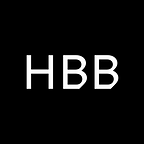The End of Hierarchy: DAOs
Learning about DAOs with Marlene Ronstedt and Nishant Bhaskar
“To me the idea of DAOs is so beautiful and powerful that I believe: if humans are a species with inherent regenerative tendencies, then DAOs will enable the best of what humanity could be” — Nishant Bhaskar
For Nishant Bhaskar, co-founder and CEO of Lomads DAO, as for one of our very first speakers on this asynchronous conference, David Mattin, the ability of humans to coordinate at scale makes us truly unique as species. So why not strive to achieve even more because of it? DAOs have come to mean a new kind of world, one for freelancers, moveable, multi-specialized professionals, and contributors. And they can also help us overcome some of the challenges we’re facing in Web2 today, like data ownership.
We’ve all heard before that one of the weak spots of Web2 is the handling of users’ data, right? We’ve got almost no ownership, no control over it. It’s quite freaky.
But what are some concrete ways to address this problem, starting now? Enter Marlene Ronstedt, our last week’s speaker and the co-founder of Data Union DAO, where data ownership is revised. The idea behind Data Union is for people to be able to choose what kind of data they would like to contribute, do it, and get remunerated for the value of their contribution.
So imagine you choose something, like your data from Spotify, the liked tracks, favourite artists, and the record of your listening patterns. Imagine you partner up with a thousand other Spotify listeners. Based on your collective aggregated contribution, a data product is being contributed, and that creates impact. A data buyer can then buy that data set, or subscribe to a real-time version of that data, whereas you and other participants get paid for your data in crypto. And we’re talking about things already happening now. The biggest data union in this ecosystem, Swash, has 400 000 members today.
So, DAOs, huh. Quite a mouthful, as Marlene says! There are many understandings and definitions of it, but perhaps to start, here are a few types of them. There are Autonomous DAOs that operate through smart contracts and automatic execution of decisions. Bureaucratic DAOs constitute a messier model where joining is easier, through having the token, and decisions have to be implemented by its members. And then there are CEO DAOs, closest to Web2 models, where the decentralization aspect is manifested in the project being open-sourced and its code being on the chain, the teams being decentralized, and DAOs having numerous token holders.
The pendulum of “(de)centralization” is swinging hard from super classical structures of Web2 to completely novel forms of governance and collaboration in Web3. “But there is nothing wrong with progressive decentralization,” Nishant says. Going for a DAO structure doesn’t mean we’re forsaking other business models. It’s more of a gradual transition to these new models that use elements of our traditional structures in new ways.
So there are a few governance models among DAOs that Nishant spoke to us about. For example, the classical DeFi model, where the more financial skin in the game you have, the more voting power you’ve got. Another model does deals not only with the amount of finance put into the capital pool, but also the organization’s reputation, revenue growth, etc. And there are some others, with creators and their supporters, and the voting rights distributed among them.
What’s crucial is designing the incentives: tokens, benefits, discounts, ranking, points, quest boards, bounty boards, among others. Why so? Because “in DAOs people contribute if they receive the value,” Nishant says, so the aspects that matter are value, behaviour, and objective. How do you want people to participate and behave? It’s about rewarding these behaviours and penalizing the ones you don’t want reproduced.
Marlene and her teammates from Data Unions DAO are currently working on creating and staking their own governance token to build a community around it, vote on funding proposals. And the toughest part, she says, is making it secure and legal for everyone. Like, to avoid community members being fined for $1.26 million for crypto promotion by the S.E.C., like Kim Kardashian. Staking, in particular, is what makes a DAO trustworthy. “It’s what aligns the ecosystem,” Marlene concludes.
Tokens can be independently affiliated, they can be security or utility oriented. But being a DAO doesn’t necessarily mean you need to have a token, Nishant says; DAOs can be used for voting on Discord, for example. “It’s all about finding the right balance of what’s at stake.”
As Marlene says, the adoption of these technologies depends on the cultural attitude towards processes like data sharing (which is not widely popular in Europe). The process takes time; but both our speakers agree that it’s quite alright. For Nishant, organizations are following growth patterns, like humans—there’s childhood, then adolescence, then early adulthood, and so on. The whole process is like moving from an early adopters’ market, to early majority market. But don’t worry about having to discover too much all at once. “Initially you don’t need governance models or tokens: just find a small team and experiment with this novel kind of work structure,” Nishant recommends. The basics are: you need to attract people, have a well-defined cause, and have a clear path to value. And Nishant and his team from Lomads DAO will be there to help you simplify things and help you with the most basic tools to get started.
Want to learn more and join our 20-week-long learning journey?
There couldn’t be a better moment to do so! This week we opened up the stage to our participants, who are rocking it with their own wisdom: Shakespearean avatars, crypto for financial freedom, matching with gamers, and the manifolds of the metaverse, among other topics. Tune in at any moment to hear their contributions!
Katia Zoritch, writer at the House of Beautiful Business
